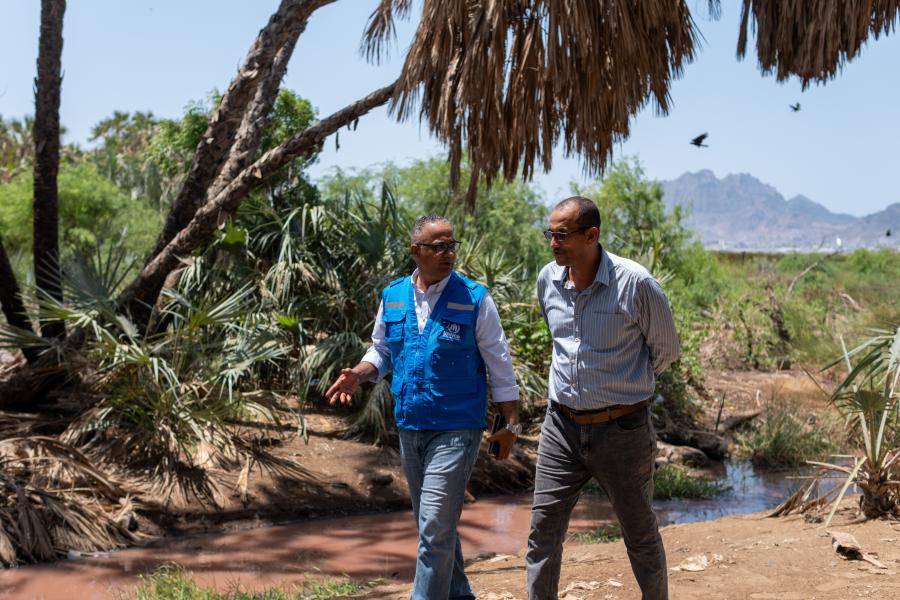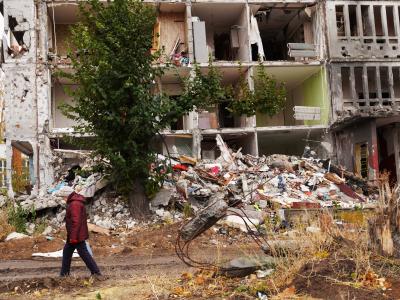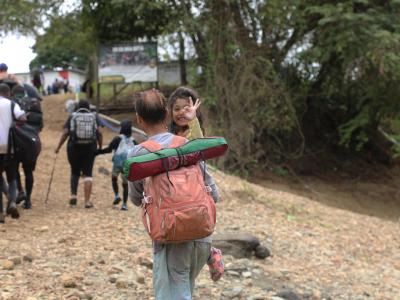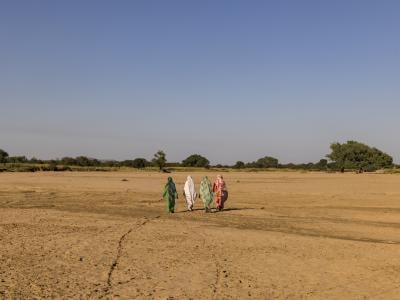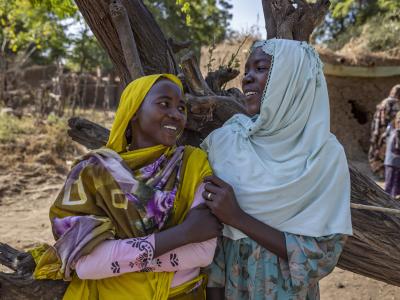UNHCR is increasingly working with development actors such as the World Bank to progress towards solutions and sustain government-led responses, since humanitarian funding alone cannot meet the challenge of unprecedented and protracted displacement. In 2025, UNHCR will encourage greater involvement by international financial institutions and development agencies, supporting the inclusion of forcibly displaced and stateless people in national economies and services, generating more socioeconomic data, and encouraging more countries to include forcibly displaced populations in their national statistics.
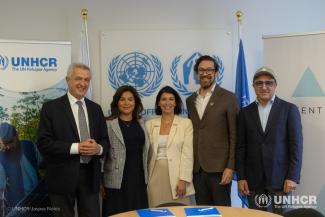

Building pathways to employment: UNHCR and Tent join forces for refugee inclusion
In 2024, UNHCR formalized its partnership with the Tent Partnership for Refugees, a network of over 400 companies across the Americas and Europe committed to integrating refugees into the workforce. Tent is dedicated to supporting businesses in addressing the common barriers to employment that refugees face and provides its member companies with locally tailored guidance and resources to successfully hire refugees, enabling their economic inclusion and independence. The partnership, solidified through a Memorandum of Understanding, signed at the 2024 UN General Assembly, marks a significant step in scaling up efforts to connect refugees with decent work. It builds on over eight years of joint initiatives between UNHCR and Tent – like developing hiring guides and hosting job fairs in countries such as France and Mexico – to help refugees secure meaningful employment and sets to evolve and expand the collaboration, driving future efforts to remove barriers to employment for refugees.
Another project is underway in Pakistan, and plans are in place to expand solarization efforts globally. By 2030, UNHCR aims to reduce greenhouse gas emissions from emergency operations by 30%.
